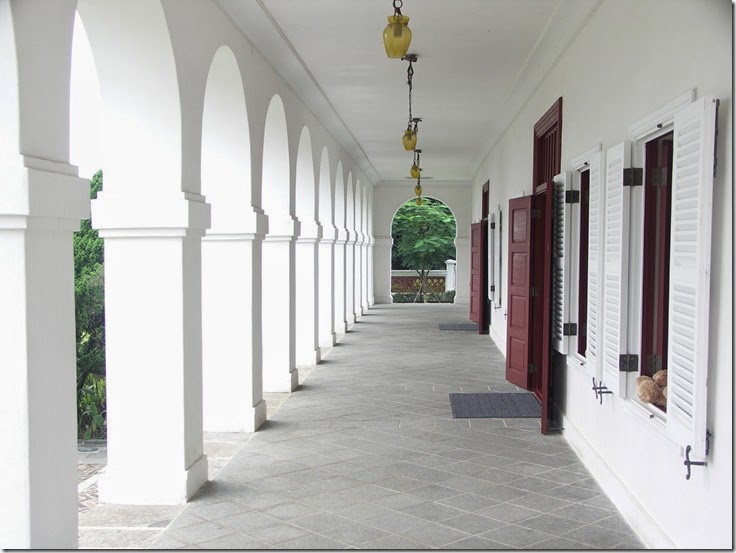Yun JI : (2024/1/23)
分衛的梵語對應詞是piṇḍapāta,但目前看來,這個詞的發音表明,最早也可能是譯自某種俗語。所以後來佛教音義書還特意提到這個詞的對音不對:“分衛,此言訛也。正言儐荼波多”。-------
蘇錦坤 : (2024/1/23)
「分衛」一詞,最早見於支婁迦讖譯《阿閦佛國經》、安世高譯《尸迦羅越六方禮經》與曇果共康孟詳譯《中本起經》。雖然《尸迦羅越六方禮經》是否為安世高所譯,頗有問題;但是出於漢譯佛典的最初期,應可確認。
以後,三國時期康僧會、支謙與西晉白法祖、法立與法炬、竺法護續用此一譯詞,一直到唐代、北宋譯經仍有譯例。
上篇貼文提及「分衛」兩字與梵巴用字不符,而欲溯源期最初所以音譯成「分衛」的緣由,既難論列,也無從驗證。
只能說,廣淨老法師的「分衙」兩字,入情合理,頗有可能。
如果真為「分衙」兩字而訛為「分衛」,則此訛誤甚早,導致整部「大藏經」只見「分衛」,而無任何一「分衙」留存。
-------
《一切經音義》的字源分析(Etymology),常「想當然耳」,自由聯想而無文獻基礎,最好不要引以為據。至於譯詞的溯源,又常不辨梵、巴、犍陀羅語,常據梵字讀音以指稱古人為訛,也是需仔細、謹慎對待。
《一切經音義》卷19:「分衛(此言訛也,正言『賓荼夜』,此云『食團』,謂行乞食也)。」(CBETA, T54, no. 2128, p. 425, a4)
《一切經音義》卷34:「分衛(此言訛也。正言:『儐荼』,此云『團』;『波多』,此云『墮』;言『食墮在鉢中』也。或言『賓荼夜』,此云『團』,『團』者,『食團』謂乞食也)。」(CBETA, T54, no. 2128, p. 538, a6)
---------
賢極法師留言: (2024/1/28)
剛剛查了《佛教混合梵语词典》。
“piṇḍapāta”这个词由两部分组成:“piṇḍa”意为食物,而“pāta”则可以理解为被投掷或放置。因此,“piṇḍapāta”可以被理解为将食物放入僧侣的钵中。
這與《一切經音義》關於詞源的解釋似乎是一致的。
BHSD 佛教混合梵语词典:
【piṇḍapāta】, m. (see pāta), or °pātra(the latter very often, esp. in mss., tho editors often em., cf. Speyer Av i.13note 1; Index to Divy suggests two different words, 'often confused', but notethat even in the cliché list of pariskāra, q.v., piṇḍapāta occurs asalways in Pali, beside °pātra, the latter e. g. Suv 112.9; Śikṣ 41.18:Sukh 27.1; LV 2.22; also mss. at Av i.13.4 ct alibi, Speyer, note ad loc.; itseems that both forms mean simply alms-food (-attainment, put into amonk's bowl), as is quite obvious in Pali, see Childers and PTSD, and in someBHS passages; the BHS °pātra was doubtless due to pppular etym., associationwith pātra = Pali patta, bowl; tho secondary and unoriginal it occurs sooften that it seems probably to have been used in BHS tradition, by the side of°pāta), food thrown into a monk's almsbowl; see also (besides s.v. pariṣkāra)s.v. paścādbhakta: °pāta Mvy 2374; 8571; 8581; 8591; 8671; Divy 188.24;236.28; 262.23; 553.3, 10; 573.10; Jm 19.25; RP 29.13; Śikṣ 128.2, 8; 215.7;Prāt 500.4 ff. (so regularly in Prāt); Bhīk 23a.1; °pāta-cārika, living byalms-begging, RP 57.10 (= °pātika), °pātra, besides cases in cpds.cited above, Śikṣ 312.14; v.l. in Myy 8571, 8581, 8591, above; ekapiṇḍapātreṇaMv iii.225.10, 13, 21, with nothing but (a bowl of) almsfood.—SeeRahder, Hobogirin 158.


1 則留言:
賢極法師留言: (2024/1/28)
剛剛查了《佛教混合梵语词典》。
“piṇḍapāta”这个词由两部分组成:“piṇḍa”意为食物,而“pāta”则可以理解为被投掷或放置。因此,“piṇḍapāta”可以被理解为将食物放入僧侣的钵中。
這與《一切經音義》關於詞源的解釋似乎是一致的。
BHSD 佛教混合梵语词典:
【piṇḍapāta】, m. (see pāta), or °pātra(the latter very often, esp. in mss., tho editors often em., cf. Speyer Av i.13note 1; Index to Divy suggests two different words, 'often confused', but notethat even in the cliché list of pariskāra, q.v., piṇḍapāta occurs asalways in Pali, beside °pātra, the latter e. g. Suv 112.9; Śikṣ 41.18:Sukh 27.1; LV 2.22; also mss. at Av i.13.4 ct alibi, Speyer, note ad loc.; itseems that both forms mean simply alms-food (-attainment, put into amonk's bowl), as is quite obvious in Pali, see Childers and PTSD, and in someBHS passages; the BHS °pātra was doubtless due to pppular etym., associationwith pātra = Pali patta, bowl; tho secondary and unoriginal it occurs sooften that it seems probably to have been used in BHS tradition, by the side of°pāta), food thrown into a monk's almsbowl; see also (besides s.v. pariṣkāra)s.v. paścādbhakta: °pāta Mvy 2374; 8571; 8581; 8591; 8671; Divy 188.24;236.28; 262.23; 553.3, 10; 573.10; Jm 19.25; RP 29.13; Śikṣ 128.2, 8; 215.7;Prāt 500.4 ff. (so regularly in Prāt); Bhīk 23a.1; °pāta-cārika, living byalms-begging, RP 57.10 (= °pātika), °pātra, besides cases in cpds.cited above, Śikṣ 312.14; v.l. in Myy 8571, 8581, 8591, above; ekapiṇḍapātreṇaMv iii.225.10, 13, 21, with nothing but (a bowl of) almsfood.—SeeRahder, Hobogirin 158.
張貼留言